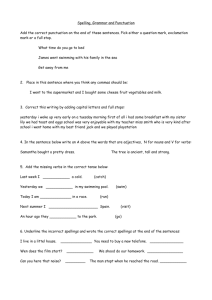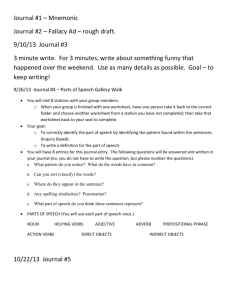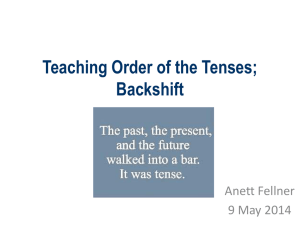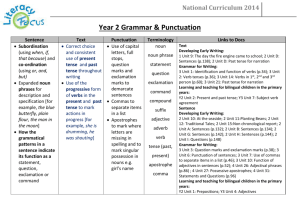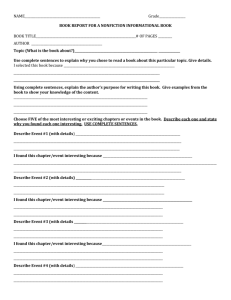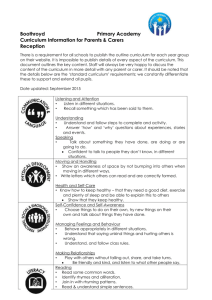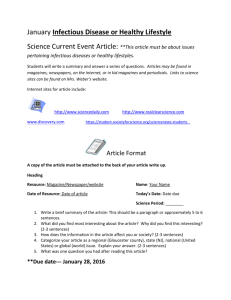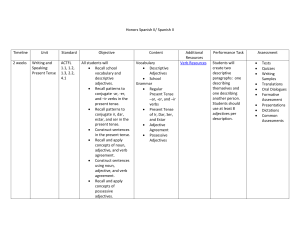Power Sentence Core Rules Checklist
advertisement
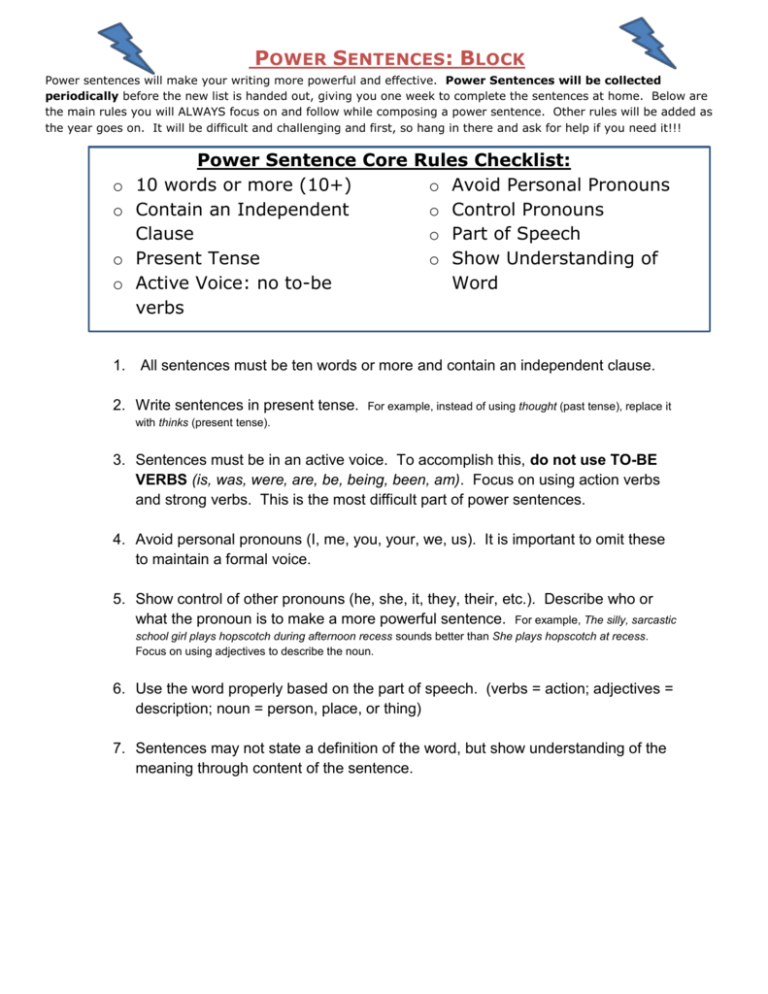
POWER SENTENCES: BLOCK Power sentences will make your writing more powerful and effective. Power Sentences will be collected periodically before the new list is handed out, giving you one week to complete the sentences at home. Below are the main rules you will ALWAYS focus on and follow while composing a power sentence. Other rules will be added as the year goes on. It will be difficult and challenging and first, so hang in there and ask for help if you need it!!! o o o o Power Sentence Core Rules Checklist: 10 words or more (10+) o Avoid Personal Pronouns Contain an Independent o Control Pronouns Clause o Part of Speech Present Tense o Show Understanding of Active Voice: no to-be Word verbs 1. All sentences must be ten words or more and contain an independent clause. 2. Write sentences in present tense. For example, instead of using thought (past tense), replace it with thinks (present tense). 3. Sentences must be in an active voice. To accomplish this, do not use TO-BE VERBS (is, was, were, are, be, being, been, am). Focus on using action verbs and strong verbs. This is the most difficult part of power sentences. 4. Avoid personal pronouns (I, me, you, your, we, us). It is important to omit these to maintain a formal voice. 5. Show control of other pronouns (he, she, it, they, their, etc.). Describe who or what the pronoun is to make a more powerful sentence. For example, The silly, sarcastic school girl plays hopscotch during afternoon recess sounds better than She plays hopscotch at recess. Focus on using adjectives to describe the noun. 6. Use the word properly based on the part of speech. (verbs = action; adjectives = description; noun = person, place, or thing) 7. Sentences may not state a definition of the word, but show understanding of the meaning through content of the sentence.

